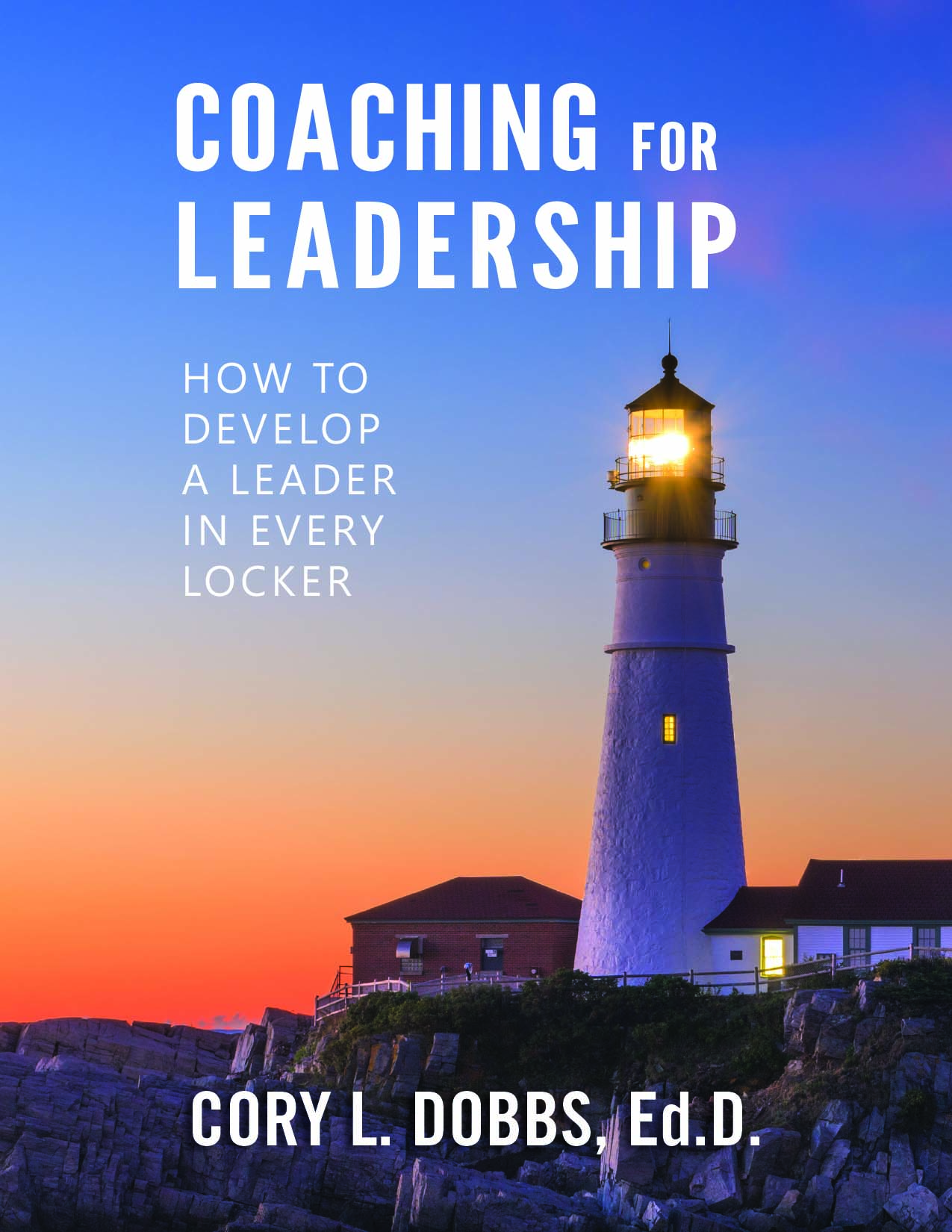
These three short and impactful articles were submitted by Dr. Cory Dobbs of The Academy for Sport Leadership: Dr. Dobbs is a regular contributor on coaching for leadership to The Coaching Toolbox.
Conversation: The Catalyst for Creating Culture
A good conversation produces good teamwork. Great conversation produces great teamwork. Good conversations build good relationships. Great conversations build great relationships. Great relationships build great teams.
Conversation is perhaps the most taken-for-granted aspect of life. Conversation, the thinking goes, is natural, and as such, we become skilled communicators the more we talk. This is simply a myth. While we continually experience poor conversation and poor relationships, and we know it is directly connected to conversation—the way we talk to each other—we are slow to change our conversational practices.
Conversation is the catalyst for creating your team’s culture. It’s likely a good time to review your personal, staff, and team’s conversational habits and practices.
Do You Know the Affect You Have on Others?
“I was a hothead,” confides Jason Williams, a moderately successful coach. “I used to take my emotions to the extreme—I’d take everything to heart and react adversely. I knew my emotional incompetence affected my relationships with my coaches and players. If they didn’t see things my way, I’d throw a fit. It was my way or no way. I couldn’t see it from their perspective. I simply wasn’t willing to compromise. If I was upset with something or someone, I couldn’t move on.”
A sensitive matter for each of us is the psychodynamics of self-protection and self-promotion. Quick check: How often do you think, feel, and address an adverse or challenging situation with I, me, or my? Do you hide behind your position?
How about intimidating others? Where do you get your feedback on personal and professional growth? Do you encourage or discourage honest feedback?
When we become aware of how we affect others and the experience we create with them, we have a chance at improving our ability to lead and influence those around us.
Another quick check: Think of a time when you lost trust in a leader. How did you feel? How long did it last? Did the leader do anything to regain your trust?
Think of all the relationships in which you have the opportunity to influence the thinking and behavior of others. Take the process and practice of Self-Awareness serious and you’ll increase your influence.
The Role of Reflection in Growth, Change, and Resilience
When an athlete suffers an injury, particularly one that requires a lengthy rehab, they can see it either as a traumatic event or an opportunity to learn and grow. How the athlete “perceives” the event, how they frame it, is how they will experience their circumstance.
Events such as an injury or a tough loss are not a traumatic event until we experience them as traumatic. Three-time NFL Defensive Player of the Year J.J. Watt advised that some of the most significant growth he’s experienced has come as a result of the process of recovery—treatment, reflection, rehabilitation. In particular, the time to reflect allows the athlete a huge window of opportunity to observe and reflect on the injury to be sure, but every bit as much to reflect on the process of growing as an athlete and as a person.
One of the central elements of resilience is perception, what psychologists call an “internal locus of control. The person with an internal locus of control believes they, not their circumstance, affect their achievements. The resilient student-athlete sees himself or herself as the orchestrator of their own fate.
Researchers do believe that those with an external control—those that blame others or life events for failure—can learn to change the way they perceive events in their life. With hard work and great coaching they can learn to reframe traumatic and adverse events as positive ones and become more resilient.
About Cory Dobbs, Ed.D.
Cory Dobbs is the founder of The Academy for Sport Leadership and a nationally recognized thought leader in the areas of leadership and team building. Cory is an accomplished researcher of human experience. Cory engages in naturalistic inquiry seeking in-depth understanding of social phenomena within their natural setting.
A college basketball coach, Cory’s coaching background includes experience at the NCAA DII, NJCAA, and high school levels of competition. After a decade of research and development Cory unleashed the groundbreaking Teamwork Intelligence program for student-athletics. Teamwork Intelligence illuminates the process of designing an elite team by using the 20 principles and concepts along with the 8 roles of a team player he’s uncovered while performing research.
Cory has worked with professional athletes, collegiate athletic programs, and high schools teaching leadership and team building as a part of the sports experience and education process. As a consultant and trainer Dr. Dobbs has worked with Fortune 500 organizations such as American Express, Honeywell, and Avnet, as well as medium and small businesses. Dr. Dobbs taught leadership and organizational change at Northern Arizona University, Ohio University, and Grand Canyon University.
“Tell me and I’ll forget. Show me and I may remember. Involve me and I will care.” -Your Student-Athlete The world of coaching is changing. In Coaching for Leadership you’ll discover the foundations for designing, building, and sustaining a leadership focused culture for building a high-performance team. To find out more about and order Sport Leadership Books authored by Dr. Dobbs including Coaching for Leadership, click this link: The Academy for Sport Leadership Books







